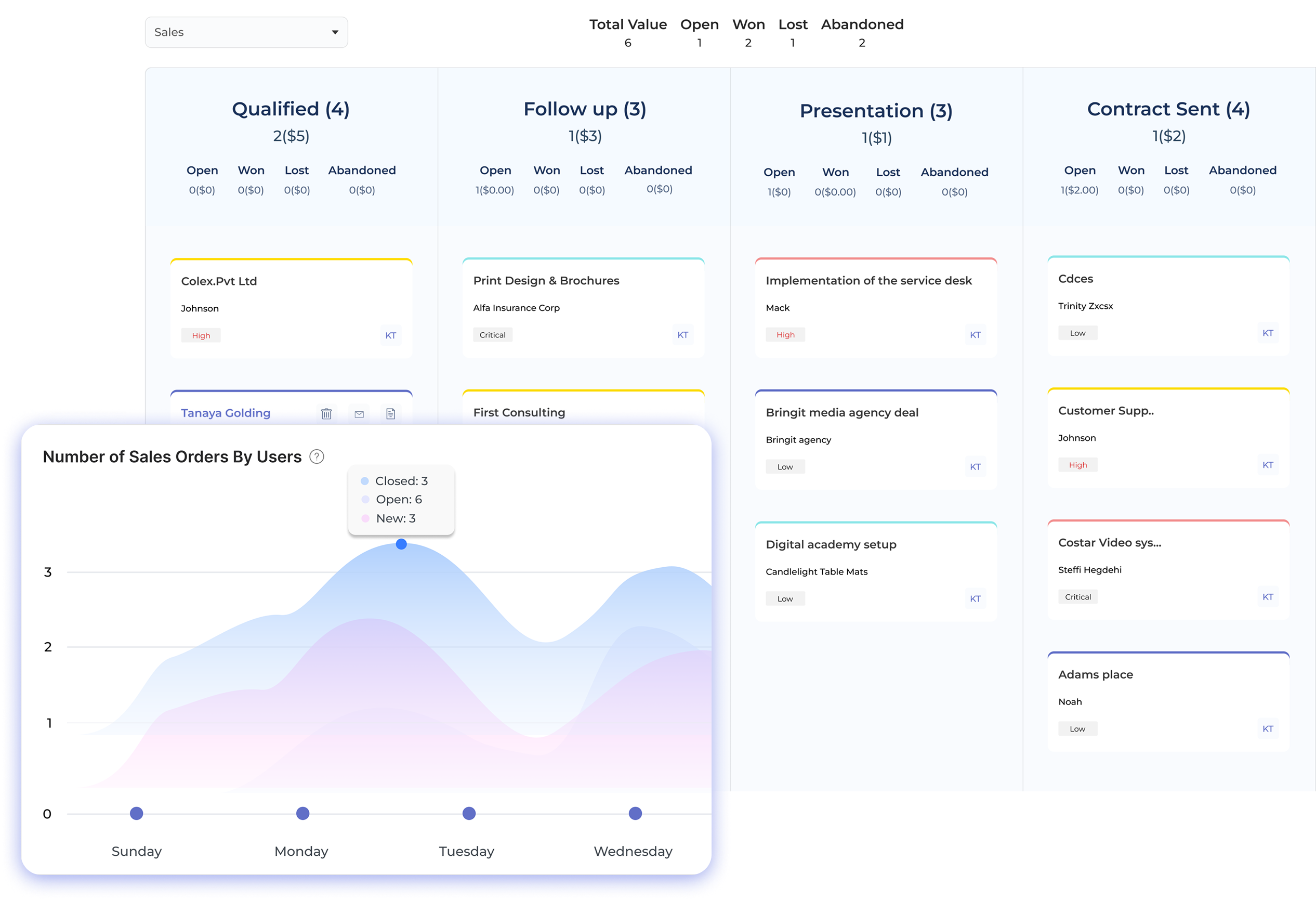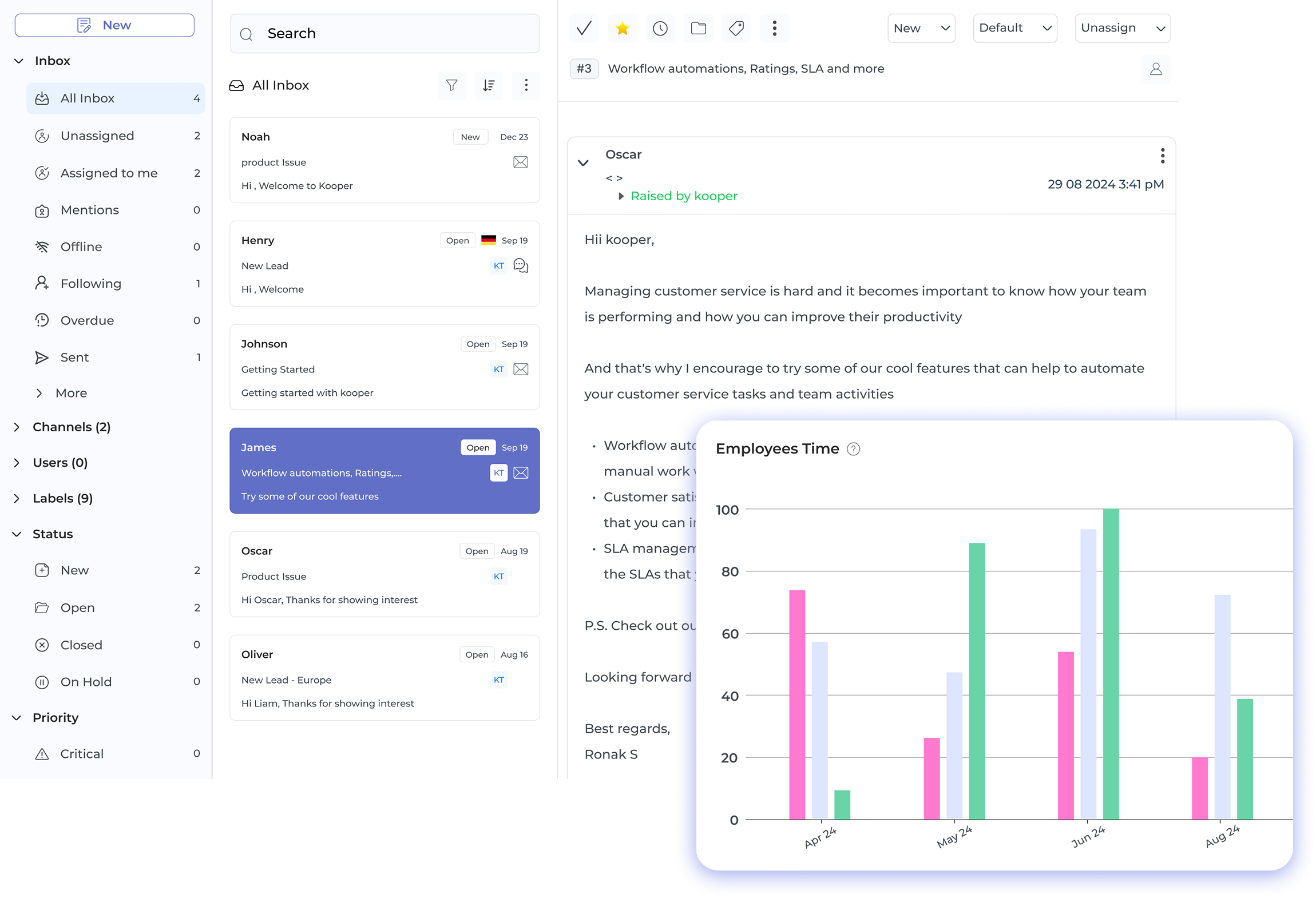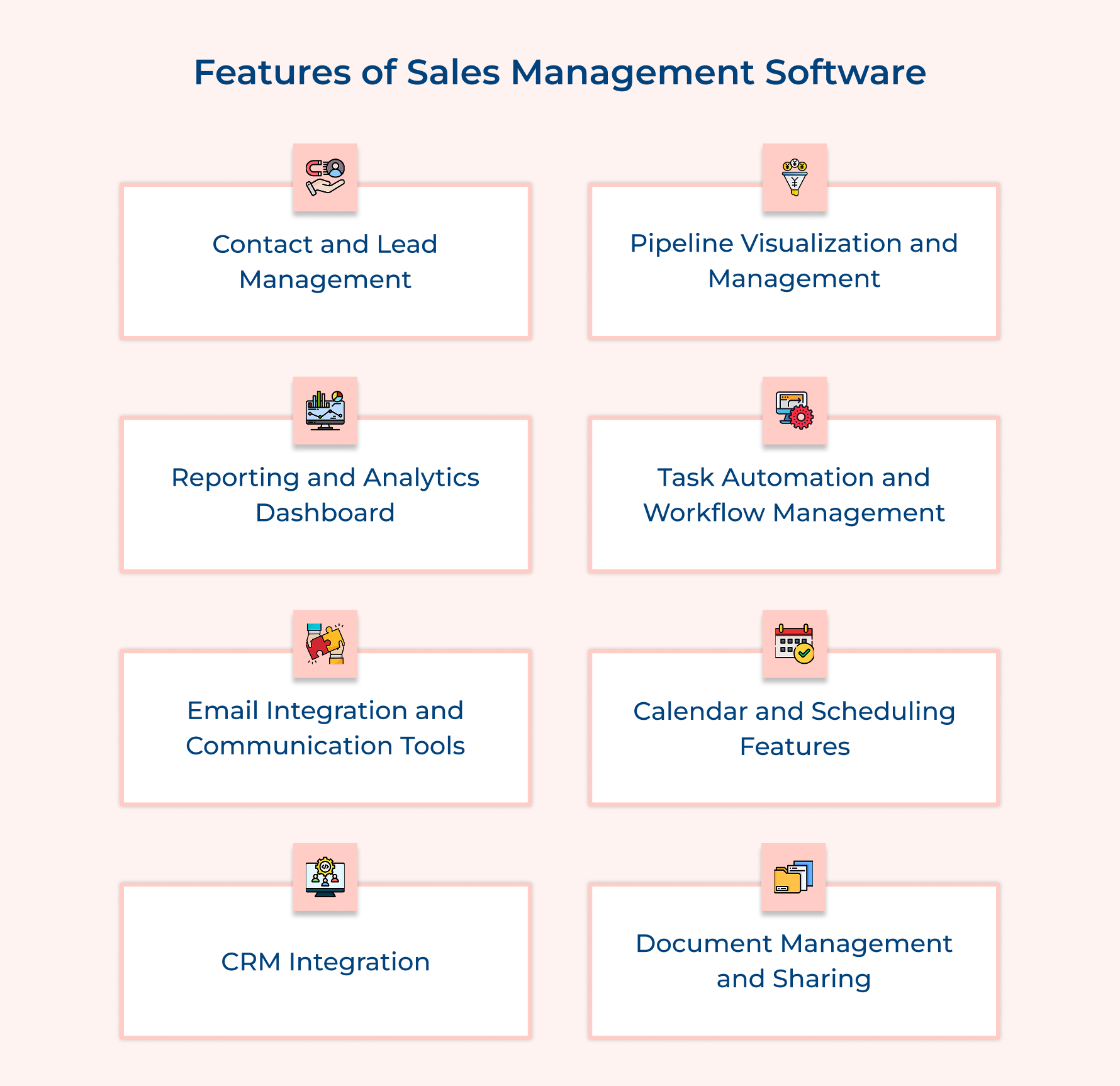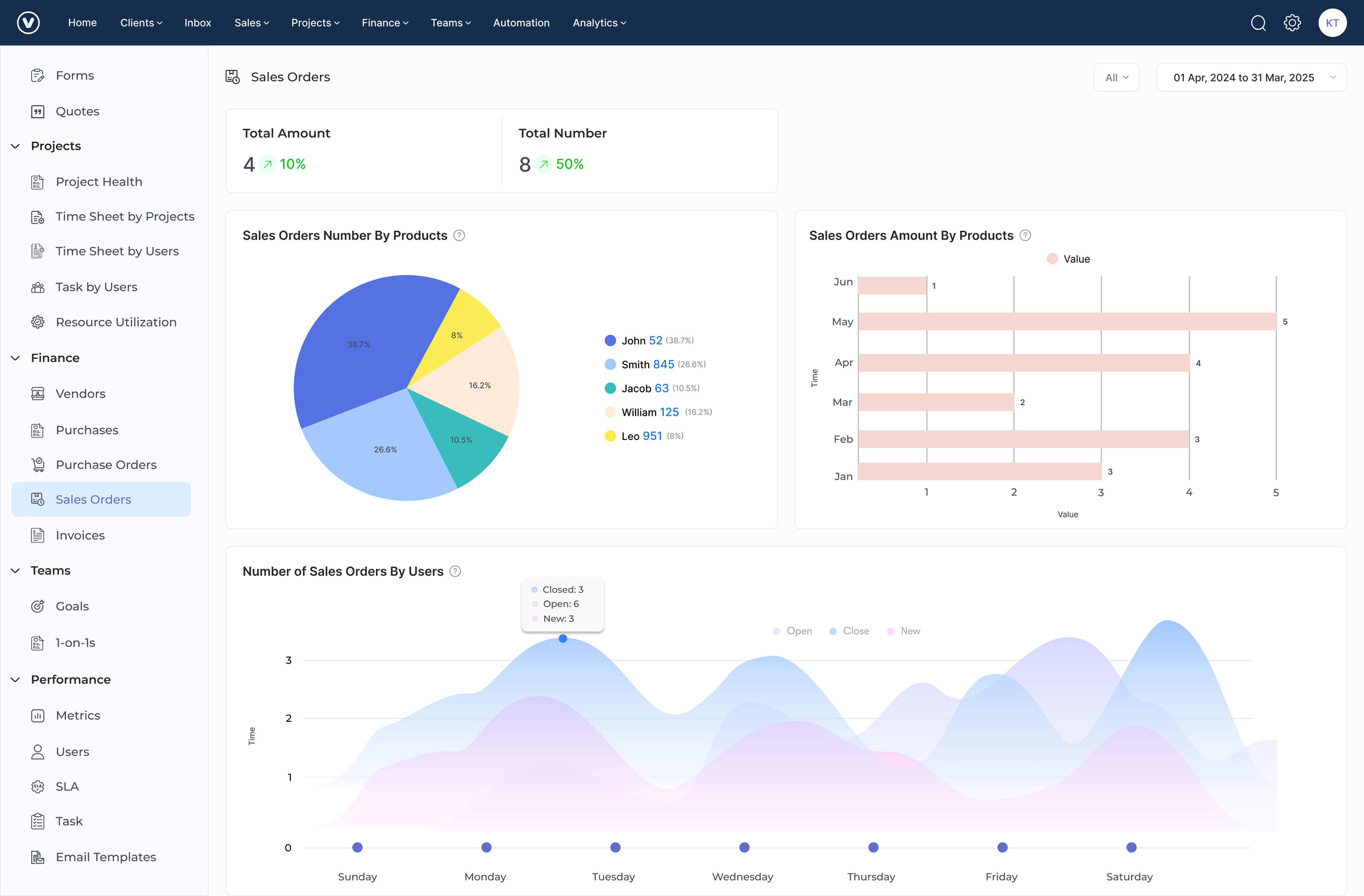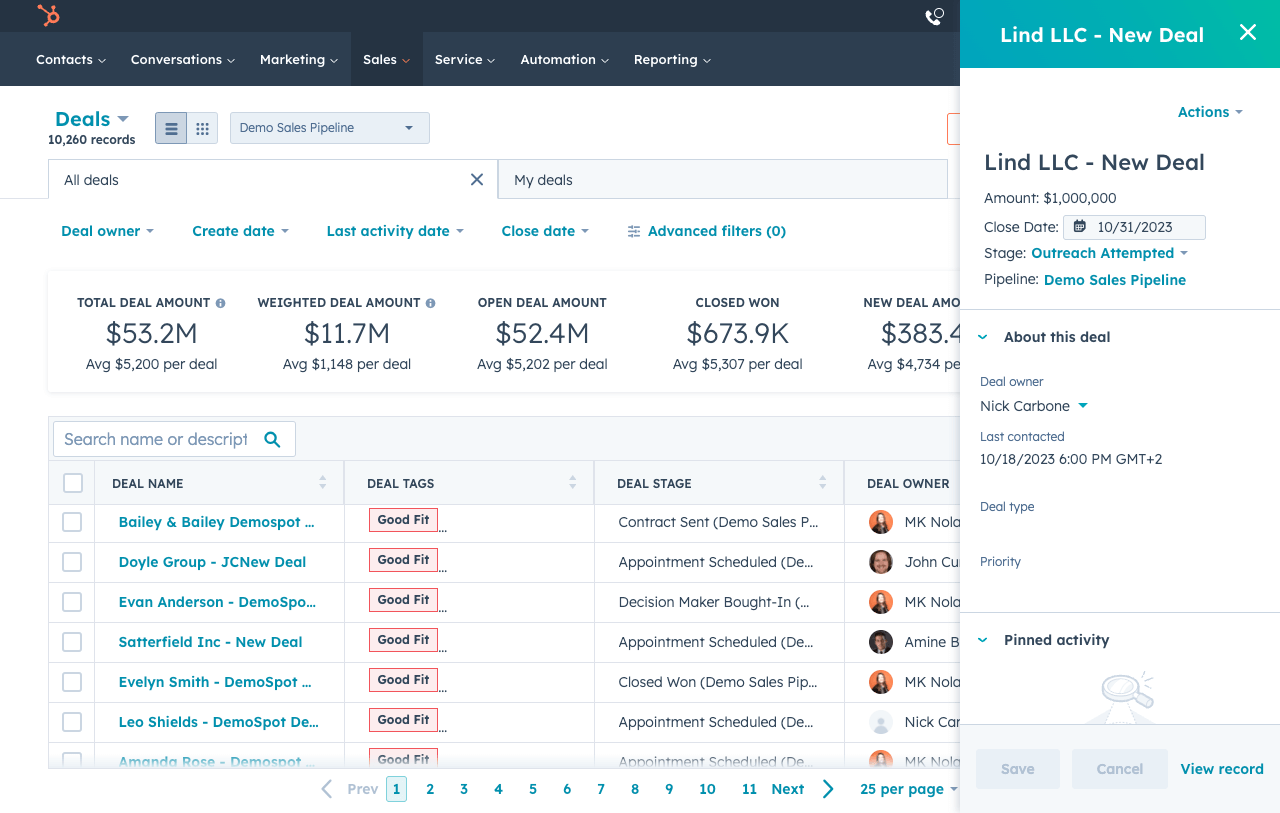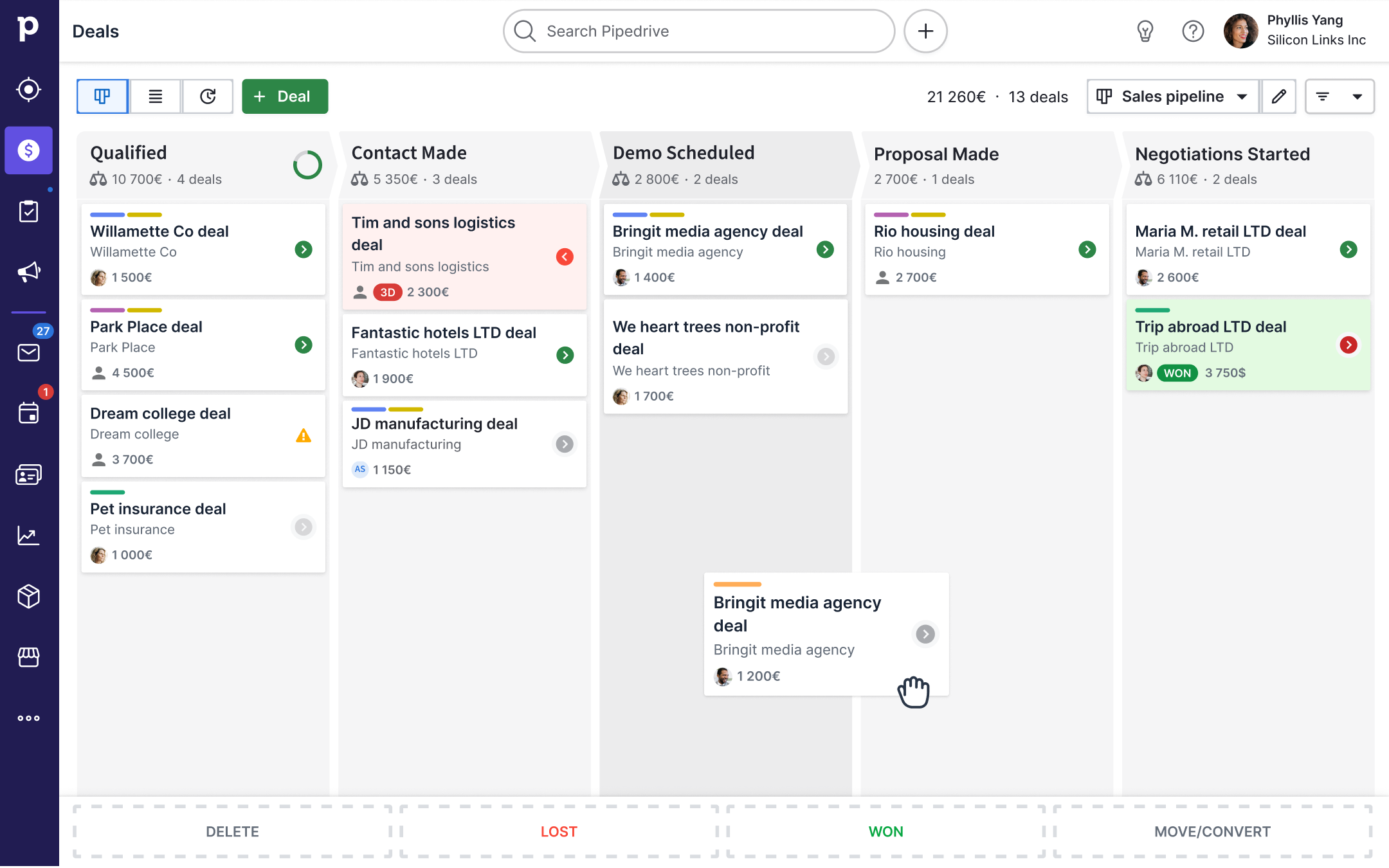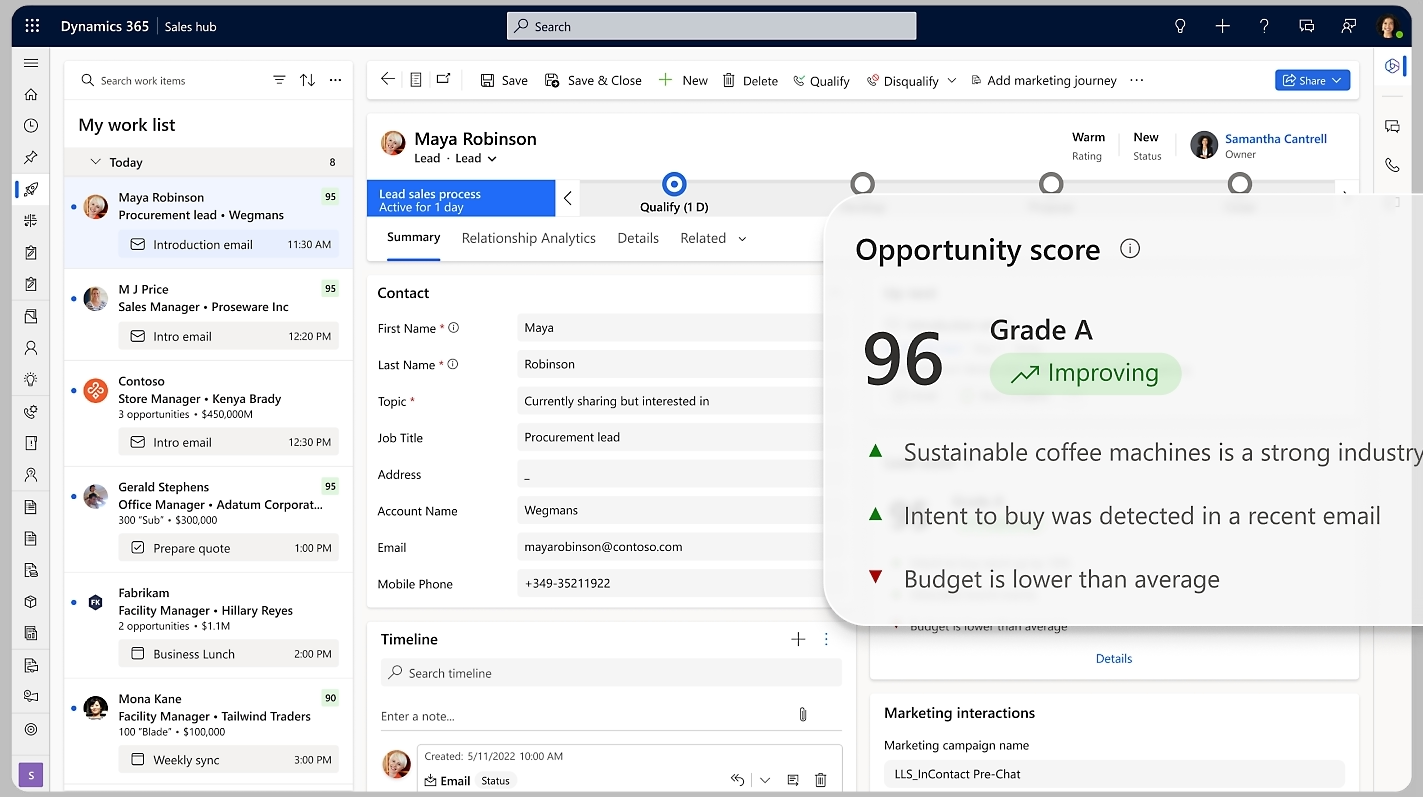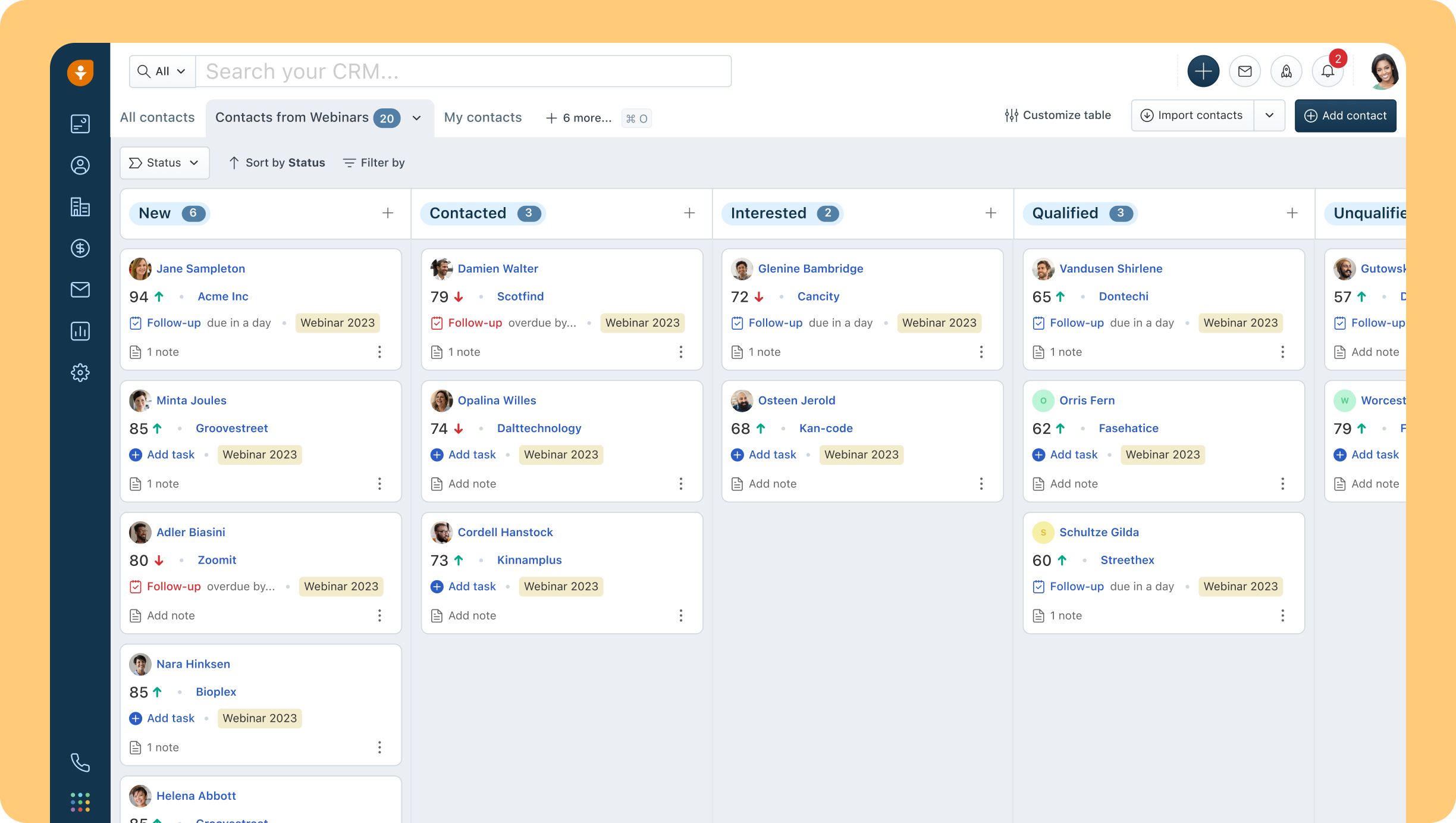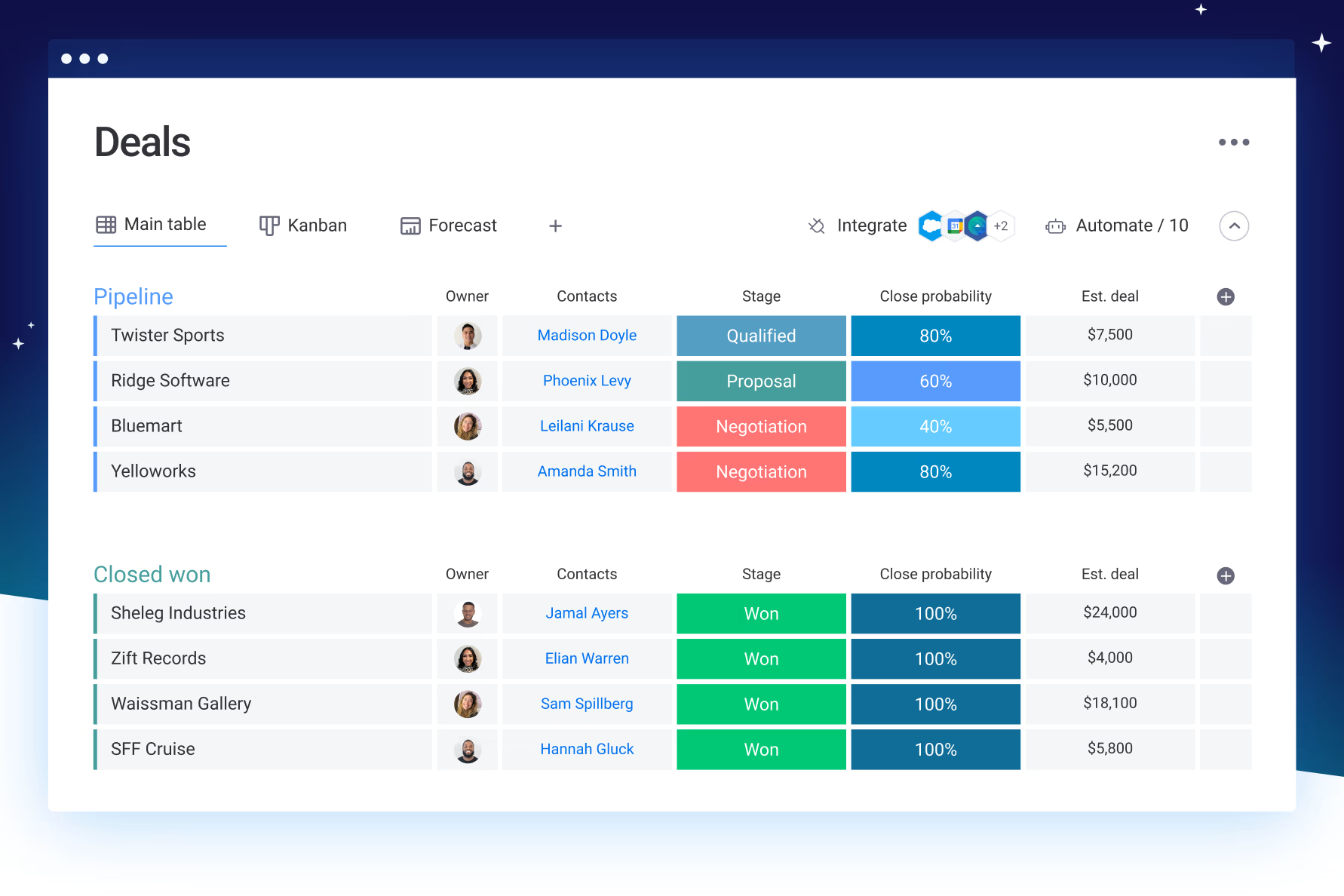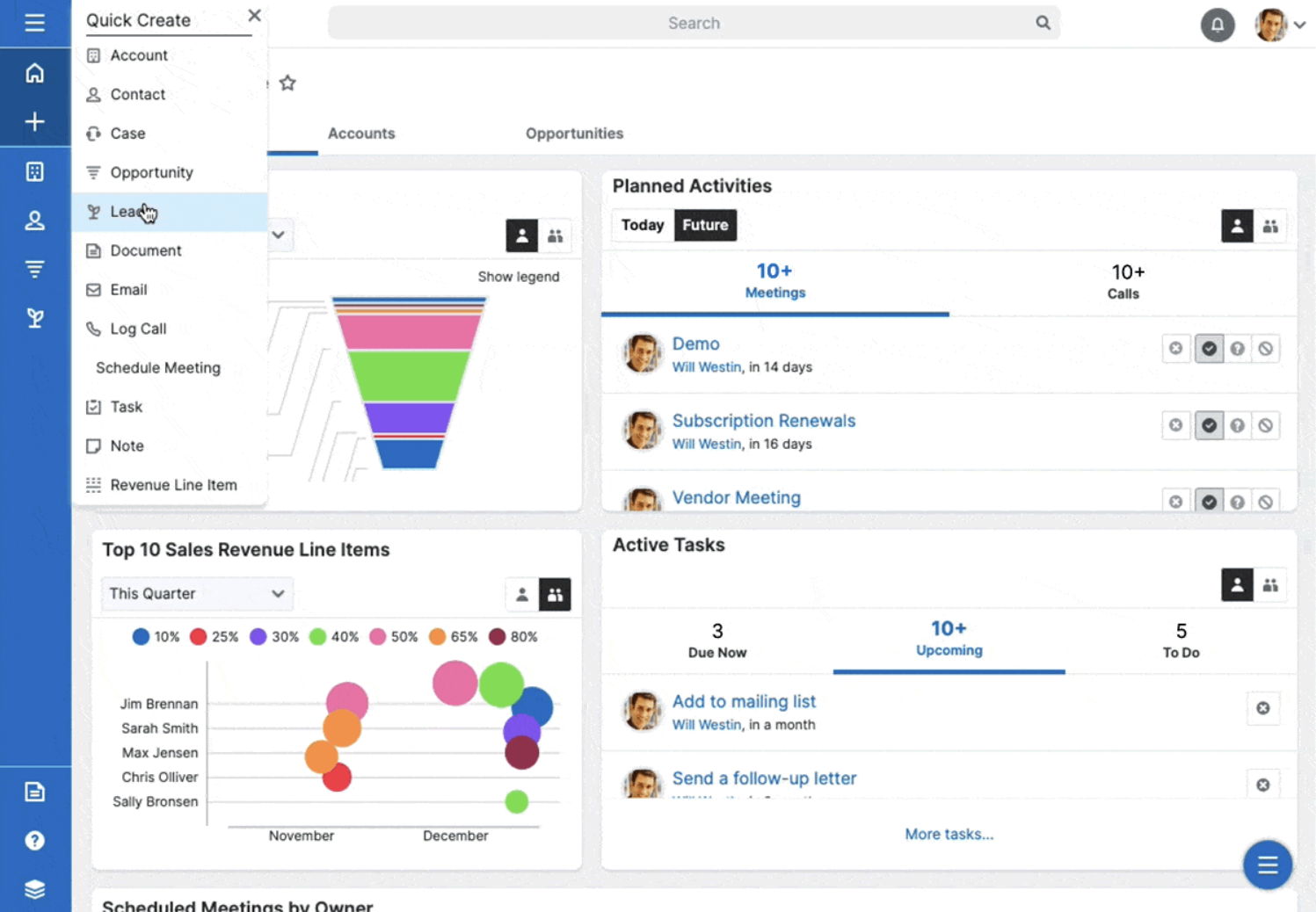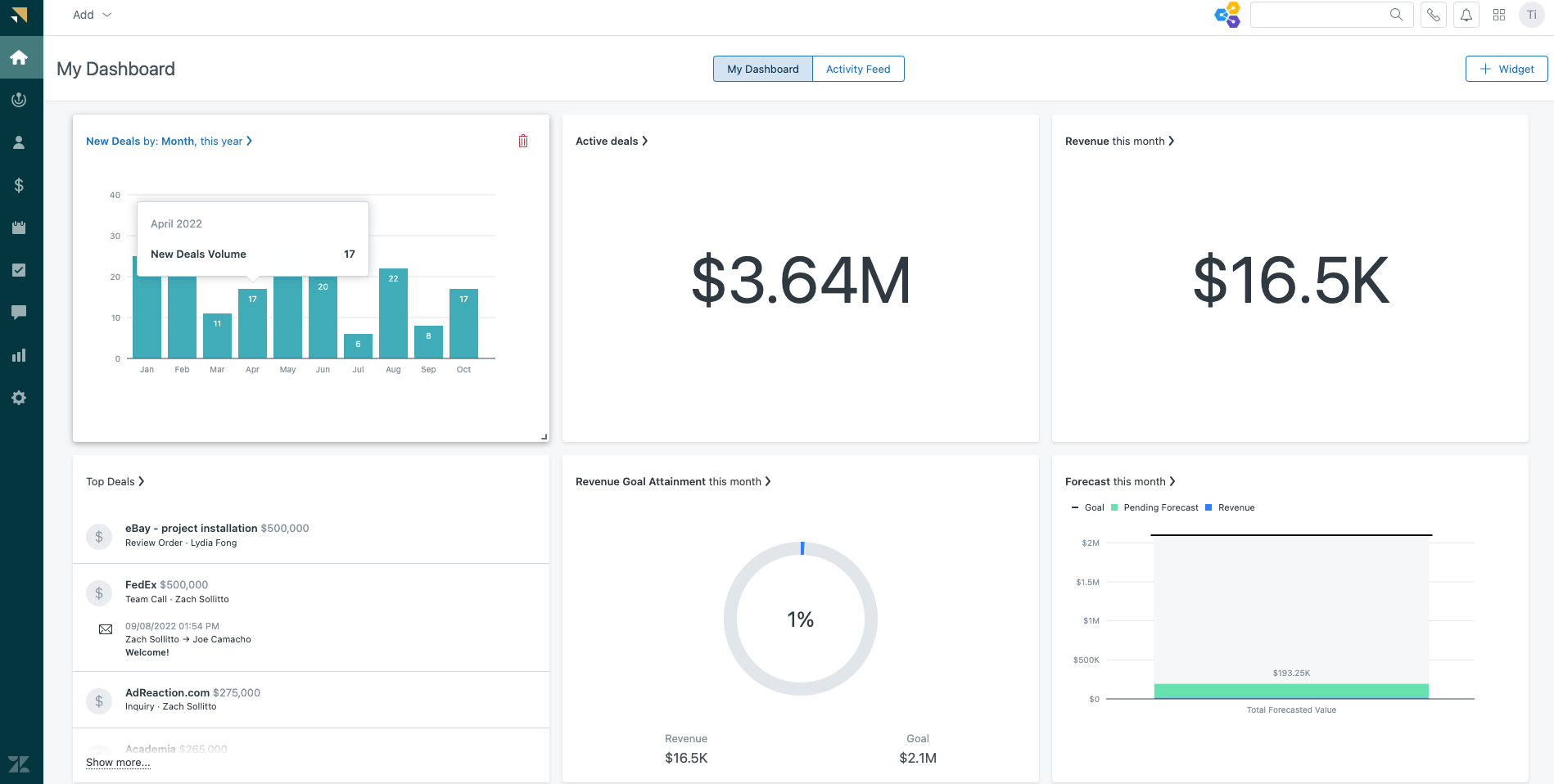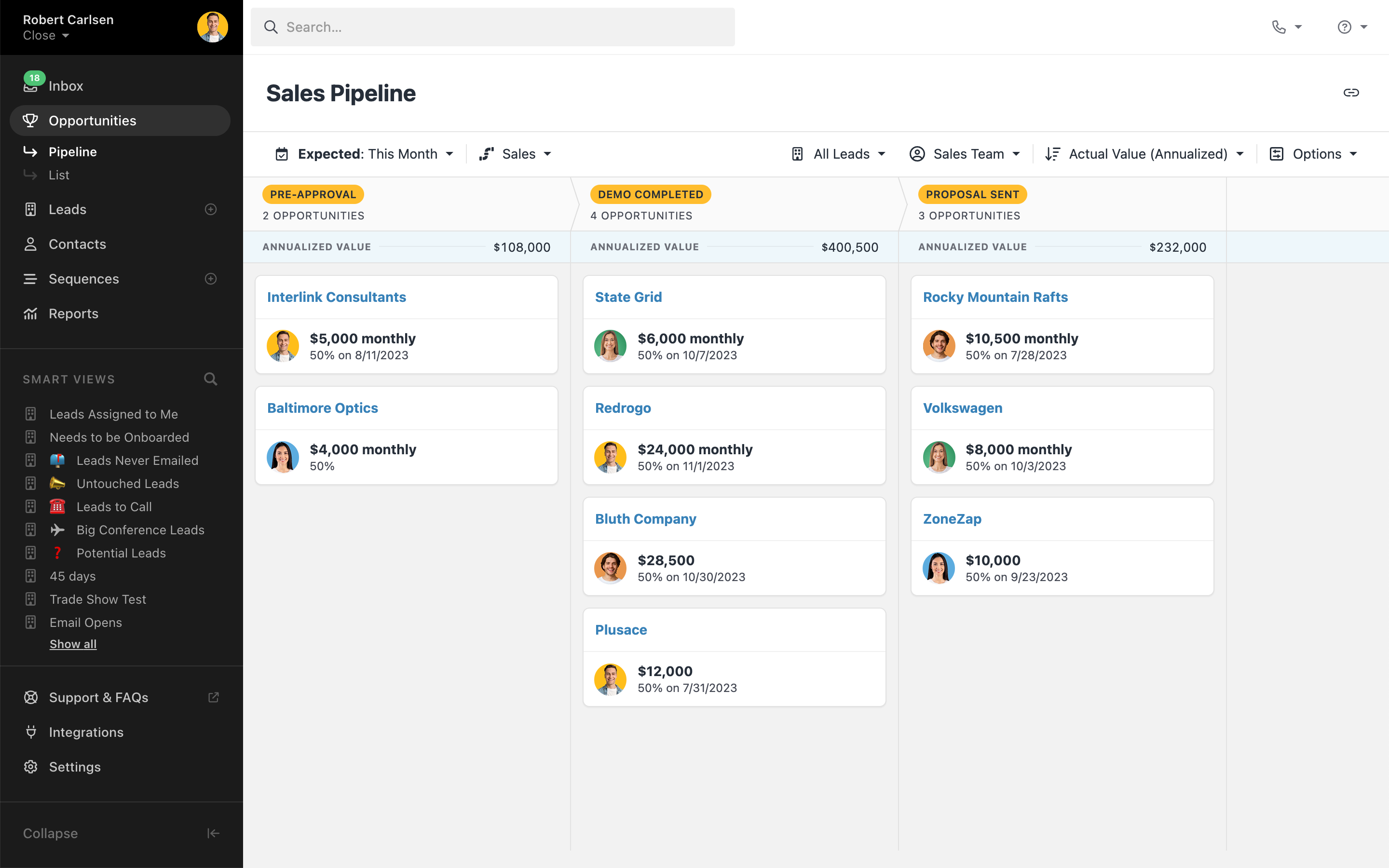Contact and Lead Management
A robust contact management system serves as the backbone of effective sales management software. In the real estate industry, a powerful real estate CRM software helps agents track client preferences and property inquiries with ease. Sales teams need easy organization of leads, with capabilities to store detailed information including interaction history, preferences and custom fields. Quick access to contact information, automated lead scoring and prioritization tools help sales teams focus on the most promising opportunities.
Pipeline Visualization and Management
Intuitive pipeline visualization features empower teams to track deals through various stages of the sales process. Many CRM tools for small businesses provide superior software capabilities such as customizable pipeline stages, drag-and-drop functionality, and clear visibility into deal values. Built-in analytics identify bottlenecks and optimize the sales process for better conversion rates.
Reporting and Analytics Dashboard
Comprehensive reporting tools deliver real-time insights into sales performance, team productivity, and revenue trends. Advanced dashboards present customizable reports, visual representations of key metrics, and the ability to drill down into specific data points. A BPM software enhances this further with predictive analysis, trend identification, and customizable KPI tracking to support long-term strategic planning.
Task Automation and Workflow Management
Smart automation features streamline routine tasks and standardize sales processes. Automated email follow-ups, task assignments, and reminder notifications boost team efficiency. A business management platform with custom workflows, trigger-based actions, and automated repetitive tasks helps increase productivity while ensuring consistency in sales operations.
Email Integration and Communication Tools
Powerful email integration allows sales teams to track communications, use email templates, and schedule follow-ups directly within the software. Email tracking, template management, and automated response handling drive efficient customer engagement. Internal messaging and shared calendars facilitate smooth team collaboration.
Calendar and Scheduling Features
Integrated calendar management tools simplify appointment scheduling and meeting coordination. For individuals working independently, integrated calendar management becomes crucial, and CRM software for freelancers provides these scheduling and coordination features in a simplified way. Advanced scheduling capabilities support resource allocation and territory management across sales teams.
Customer Relationship Management (CRM) Integration
Seamless integration with popular CRM platforms and business tools ensures consistent data flow between systems. Eliminating duplicate data entry while providing comprehensive customer relationship views increases efficiency. Bi-directional synchronization and real-time updates maintain data accuracy across platforms.
Document Management and Sharing
Professional document management systems enable efficient storage, organization, and sharing of sales contracts. These systems make it easier to track documents and manage e-signatures, streamlining deal closure when integrated with quoting software. Sales teams gain quick access to relevant documents while maintaining security and compliance standards.
